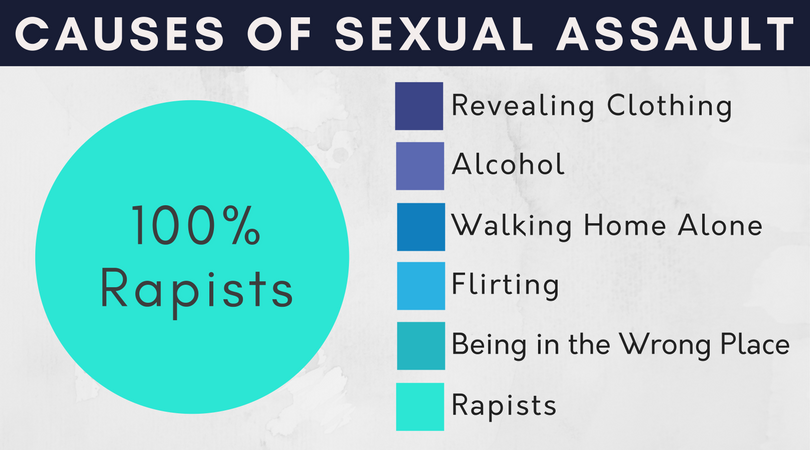
A sexual assault is never the fault of the survivor. It takes great courage for a survivor to speak about a sexual assault or reach out for help, and they should always be believed and supported. Sometimes it is hard to find the right words to say, but there are some things you should never say to a survivor of sexual assault.
1. "What were you wearing?"
2. "Were you drunk?"
Short skirts, alcohol, and flirty behavior are never the cause of sexual assault. The only cause of sexual assault? The rapist. These questions are not only presumptuous, but blame the survivor for what happened to them, and it is never their fault.3. "Why didn't you report it?"
Survivors have different reasons for not going to the police. After such a traumatic experience, reporting the incident is not always the first thing on the survivor’s mind. Many survivors are hesitant to come forward to authorities and others may just want to focus on moving forward instead of reliving the assault. Either way, it is the survivor’s decision on whether and when to report the assault.4. "Why didn't you stop them or say no?"
Everyone processes a traumatic event differently. Someone may be unable to speak due to fear, incapacitation, or shock. Additionally, a survivor may have in fact said no, and they were ignored by their assailant.5. "You were in a relationship, so it's not rape."
The assailant is often someone the person knows or may even be their significant other. Even if the person knows their attacker, it does not mean that sexual contact was consensual. Rape and other forms of sexual assault can occur even when the survivor had previously consented to a sexual relationship. The existence of any consensual relationship, whether in the past or at the time of the assault, should never be used to justify or minimize unwanted sexual contact.Every survivor’s experience is different and every survivor should be empowered and supported when they choose to share their story. Each survivor should simply be told: